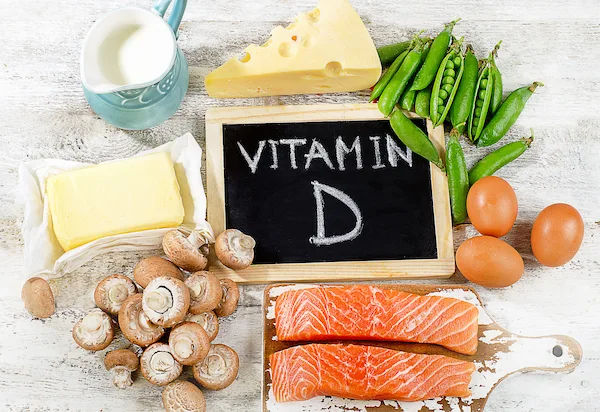Worst Foods to Avoid for Diabetics
know about diabetes friendly foods, and foods that should be avoided. Learn about healthy alternatives and tips for a healthy life.

Written by Dr. J T Hema Pratima
Reviewed by Dr. D Bhanu Prakash MBBS, AFIH, Advanced certificate in critical care medicine, Fellowship in critical care medicine
Last updated on 15th Oct, 2025

Introduction
Living with diabetes requires careful attention to diet, as certain foods can cause dangerous spikes in blood sugar levels. While managing diabetes may seem challenging, making smart food choices can help keep your condition under control. In this article, we’ll discuss the worst foods diabetics should avoid and suggest healthier alternatives.
Why Should Diabetics Watch Their Diet?
Diabetes affects how your body processes glucose (sugar). When you eat foods high in sugar or refined carbohydrates, your blood sugar levels rise quickly. Over time, uncontrolled blood sugar can lead to complications like heart disease, nerve damage, kidney problems, and vision loss.
By avoiding harmful foods and choosing balanced meals, you can:
Maintain stable blood sugar levels
Reduce the risk of diabetes-related complications
Improve energy levels and overall well-being
Consult Top Nutritionists
Top Foods Diabetics Should Avoid
1. Sugary Beverages (Soda, Fruit Juices, Energy Drinks)
The sugary beverages are harmful and should be avoided:
Why Avoid?
Sugary drinks contain high amounts of fast-absorbing sugar, leading to rapid blood sugar spikes. Even "natural" fruit juices can be harmful because they lack fibre, which slows sugar absorption.
Healthier Alternatives:
Water (plain or infused with lemon/cucumber)
Unsweetened herbal tea
Sparkling water with a splash of lime
2. White Bread, Pasta, and Rice (Refined Carbohydrates)
Why Avoid?
Refined grains are stripped of fibre and nutrients, causing quick digestion and blood sugar spikes.
Healthier Alternatives:
Whole-grain or multigrain bread
Brown rice, quinoa, or millet
Whole-wheat pasta or chickpea pasta
3. Packaged Snacks (Chips, Crackers, Cookies)
Why Avoid?
These snacks are high in refined flour, unhealthy fats, and added sugars, contributing to poor blood sugar control.
Healthier Alternatives:
Nuts (almonds, walnuts) in moderation
Roasted chickpeas
Veggie sticks with hummus
4. Fried Foods (French Fries, Samosas, Fried Chicken)
Why Avoid?
Fried foods are loaded with unhealthy trans fats, which increase insulin resistance and inflammation.
Healthier Alternatives:
Baked or air-fried snacks
Grilled or roasted chicken/fish
Steamed or sautéed vegetables
5. Full-Fat Dairy (Butter, Cream, Full-Fat Cheese)
Why Avoid?
High-fat dairy products can contribute to insulin resistance and weight gain.
Healthier Alternatives:
Low-fat or skim milk
Greek yoghurt (unsweetened)
Cottage cheese (paneer) in moderation
6. Processed Meats (Sausages, Bacon, Hot Dogs)
Why Avoid?
Processed meats contain high sodium and preservatives, increasing the risk of heart disease.
Healthier Alternatives:
Grilled chicken or fish
Lean cuts of meat (in moderation)
Plant-based proteins (tofu, lentils)
7. Sweetened Breakfast Cereals
Why Avoid?
Many cereals contain hidden sugars, leading to morning blood sugar spikes.
Healthier Alternatives:
Oatmeal (steel-cut or rolled oats)
Muesli (unsweetened)
Eggs or whole-grain toast with avocado
8. Desserts (Cakes, Pastries, Ice Cream)
Why Avoid?
These foods are high in sugar and unhealthy fats, making blood sugar management difficult.
Healthier Alternatives:
Fresh fruits (berries, apples)
Dark chocolate (70% cocoa or higher)
Sugar-free yoghurt with nuts
Tips for a Diabetes-Friendly Diet
Choose Fibre-Rich Foods – Fibre slows sugar absorption (e.g., vegetables, whole grains, legumes).
Eat Small, Frequent Meals – Helps maintain steady blood sugar levels.
Monitor Portion Sizes – Overeating even healthy foods can raise blood sugar.
Stay Hydrated – Water helps flush out excess sugar.
Read Food Labels – Avoid products with added sugars, high sodium, or unhealthy fats.
Final Thoughts
The foods diabetics should avoid include sugary substances, desserts, fried foods, packaged food, and sweetened cereals should be avoided. Instead should opt for healthier alternatives like oatmeal, baked snacks and sugar-free yoghurt. Additionally following tips for diabetes diabetes-friendly diet help in having a complete and healthy life.
Consult Top Nutritionists
Dr Sumanth R
General Physician
2 Years • MBBS
Bengaluru
PRESTIGE SHANTHINIKETAN - SOCIETY CLINIC, Bengaluru

Dr. Ramalinga Reddy
General Physician
5 Years • MBBS MD General medicine
Bengaluru
PRESTIGE SHANTHINIKETAN - SOCIETY CLINIC, Bengaluru
Dr. Sasikamalam
General Practitioner
1 Years • MBBS
COIMBATORE
Apollo Sugar Clinic Coimbatore, COIMBATORE
Mrs Sneha P V
Nutritionist
10 Years • Master of science in Food and Nutrition
Bengaluru
Apollo Clinic, Sarjapur Road, Bengaluru
Ms. Bhavana Shetty
Dietician
7 Years • DDHN & Masters in Clinical Nutrition & Dietetics
Bangalore
Apollo Sugar Clinic, Seetha circle bangalore, Bangalore
.webp)



